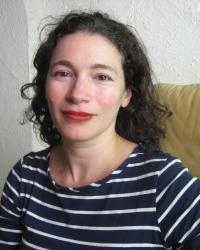
Biography
I am a scholar of modern Britain and empire, dedicated to exploring the global dimensions of British studies and participating in scholarly and public conversations about Britain’s shifting status in the world. My research interests include decolonization, legal history, urban identity, gender history, and the history of material culture and emotions. In addition to my full-time appointment in History, I also serve in African Studies, the Center for West European Studies, the Department of Gender, Women and Sexuality Studies, Museology, the Program on the Built Environment, and South Asian Studies.
My first book, The Culture of Property (Chicago, 2004), considered the legal and philosophical evolution of cultural property in Britain and its former empire. My next book, The Afterlife of Empire (Berkeley, 2012), explored how decolonization transformed British society and the welfare state in the 1950s and 1960s. I argued that the collapse of empire was not just a military or diplomatic process, but also a deeply personal one, restructuring daily routines, individual relationships, and social interactions. This book won the Morris D. Forkosch Prize from the American Historical Association, the Stansky Book Prize from the North American Conference on British Studies, and the Biennial Book Prize from the Pacific Coast Conference on British Studies.
My third book was Unsettled: Refugee Camps and the Making of Multicultural Britain (Oxford, 2018). During the 20th century, dozens of refugee camps in Britain housed hundreds of thousands of Belgians, Basques, Jews, Poles, Hungarians, Anglo-Egyptians, Ugandan Asians, and Vietnamese. But “refugee camps” in Britain were never only for refugees. Refugees shared space with Britons who had been displaced by war and poverty. These camps generated unique intimacies and frictions, illuminating the closeness of individuals that have traditionally been kept separate – “citizens” and “migrants,” but also refugees from diverse countries and conflicts. As the world’s refugee crisis once again brings to Europe the challenges of mass encampment, Unsettled offers warnings from a liberal democracy’s recent past. Some of my essays exploring the connection between the contemporary global refugee crisis and Britain's history are available under "Related Links."
I am researching a new project on friendship and loneliness in Britain, more broadly about emotion, caregiving, and the welfare state. Tentatively titled Friends and Neighbors, this project was awarded a Guggenheim Fellowship for 2022-23.
As a scholar and a teacher, I have approached the study of Europe through transnational circuits of culture and politics that extend from London to Lagos. I have published on archives and decolonization, tattooing in British Burma, interracial murder in South Asia, and radio in decolonizing Africa. My courses speak to my interests in the rise and collapse of empires, and the sources that historians use to interpret these phenomena. I have served as Director of Graduate Studies, and on the Board of Editors of the American Historical Review and Journal of British Studies. My work has been supported by the National Endowment for the Humanities, among other agencies.